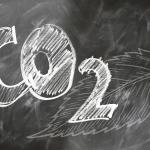The research published in the Journal of Industrial Ecology begins by noting that healthcare contributes 5-10% of the US environmental footprint.
GHG
Consider a company producing excess carbon emissions. They can comply with the new caps and purchase carbon credits to offset their excess.
There is good news. Globally, manmade GHGs are decreasing, perhaps not at the rate we might like to see, but dropping nonetheless. Now for some counterintuitive and bad news.
They begin by showing the impact of food systems on global greenhouse gases (GHG).






